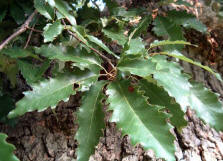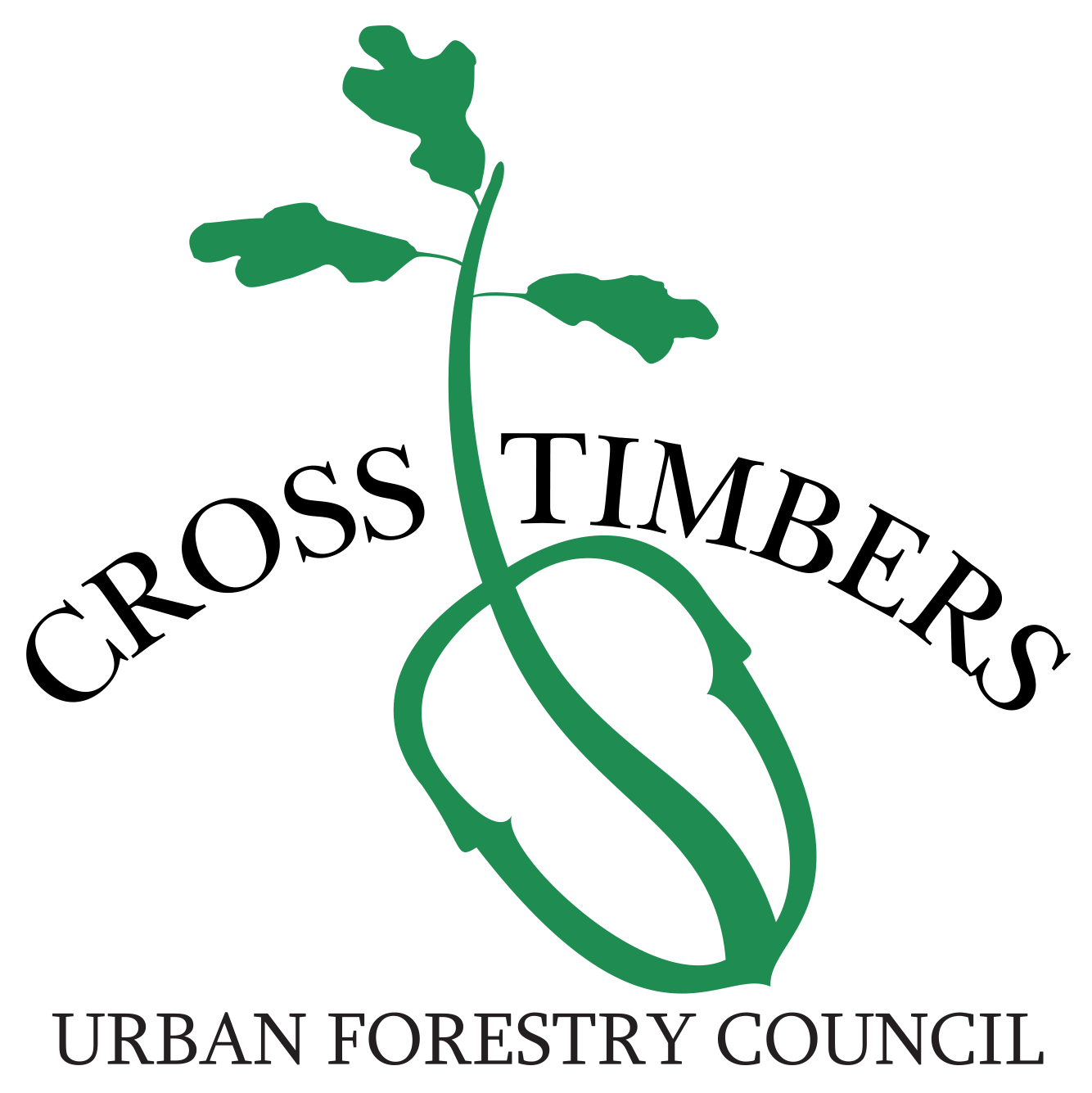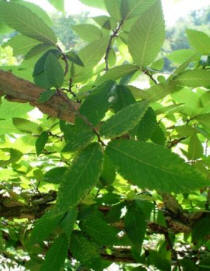
Jan 5, 2017 | Native Trees, ULMACEAE - Elm Family
Cedar elm – Ulmus crassifolia
This small trees may have “corky” growths on the twig when it is young. It grows throughout lowlands & uplands of the Cross Timbers region. This native elm is not to be confused with the eastern species winged elm, which is common in east Texas. Cedar elm leaves have a rough texture to the surface, more so than other Texas elm species. The “cedar” in the common name is not related to appearance at all, but comes from the Juniper species that is commonly found growing on the same sites.
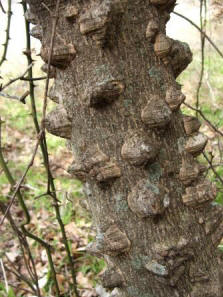
Jan 5, 2017 | Native Trees, RUTACEAE - Citrus Family
Hercules’ club – Zanthoxylum clava-herculis
This member of the Citrus family can be found in fields & other areas of sandy or rocky ground. The bark is very interesting with its knotty protuberances in pyramidal form. The odd-looking trunk earns the tree its name. The leaves contain a compound that Native Americans used to control pain. The leaves were chewed in order to relieve toothaches & gum pain. Birds love to consume the fruit, & thereby help distribute this tree.
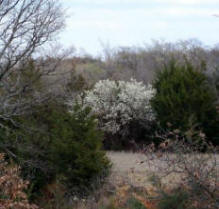
Jan 5, 2017 | Native Trees, ROSACEAE - Rose Family
Mexican plum – Prunus mexicana
This flowering tree is one of the first to bloom in the spring. You can see it’s white flowers in woods & thickets alongside the road as you speed by. It grows in a variety of soils & does well as an understory or full sun planting in a landscape situation. It produces edible fruit, but just make sure to plant yours away from sidewalks or patios – where the fruit might stain!
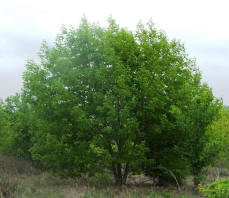
Jan 5, 2017 | Native Trees, OLEACEAE - Olive Family
Texas ash – Fraxinus texensis
This medium-sized tree grows on limestone soils. It is used in landscaping situations. It is especially good small residential lots that do not have room for a large tree. Texas ash is drought-tolerant & provides good fall color.
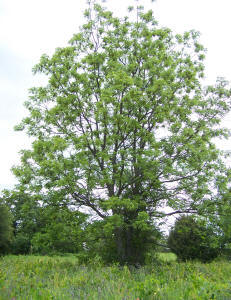
Jan 5, 2017 | JUGLANDACEAE - Walnut Family, Native Trees
Pecan – Carya illinoinensis
Pecan is Texas’ state tree. It is a grand tree that grows a large trunk, provides nutritious nuts & deep shade. Pecans grow fairly rapidly & makes a nice landscape tree in a large yard or park. Wildlife love the pecans.
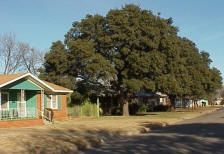
Jan 5, 2017 | FAGACEAE - Oak Family, Native Trees
Live oak – Quercus virginiana
Live oaks illicit an image of the ‘Deep South’ & tree-lined streets with Spanish moss dangling from their limbs. Live oaks are stately trees with spreading canopies that provide extensive shade. They are popular landscaping trees in our area because they are semi-evergreen; meaning they keep their leaves most of the year.
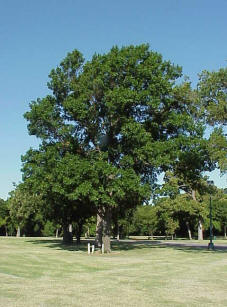
Jan 5, 2017 | FAGACEAE - Oak Family, Native Trees
Shumard red oak – Quercus shumardii
This fast growing oak is a popular choice with homeowners. It provides quick shade & excellent fall color. Its shape is very attractive as well. It’s susceptible to Oak Wilt, so before selecting a Red oak, check the diversity of trees in your yard & neighborhood. You don’t want to get completely wiped out if Oak Wilt strikes your area. Shumard red oaks grow naturally along streams & in moist forests. However, they do excellent in landscape settings.
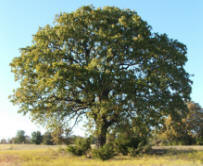
Jan 5, 2017 | FAGACEAE - Oak Family, Native Trees
Post oak – Quercus stellata
Post oak has a beautiful branching structure that speaks to rugged determination and strength. The silhouette of this tree is almost iconic. They grow mostly in sandy soils and are the dominant species of the Cross Timbers ecosystem. If you have Post oak on your property & you are considering removing some; think long & hard about this because these beautiful trees cannot be replaced in your lifetime. Post oaks are not often found at nurseries so if you have the chance to plant one on your property, don’t pass up the occasion!
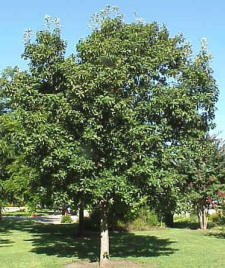
Jan 5, 2017 | FAGACEAE - Oak Family, Native Trees
Chinquapin oak – Quercus muehlenbergii
This is not a Chinquapin tree, but rather an oak that has leaves similar to the Chinquapin, hence its name Chinquapin oak. This oak grows in uplands & creek bottoms on calcareous/limestone soils. It is a popular landscaping tree in our area. It has an interesting leaf shape & displays beautiful fall colors.
